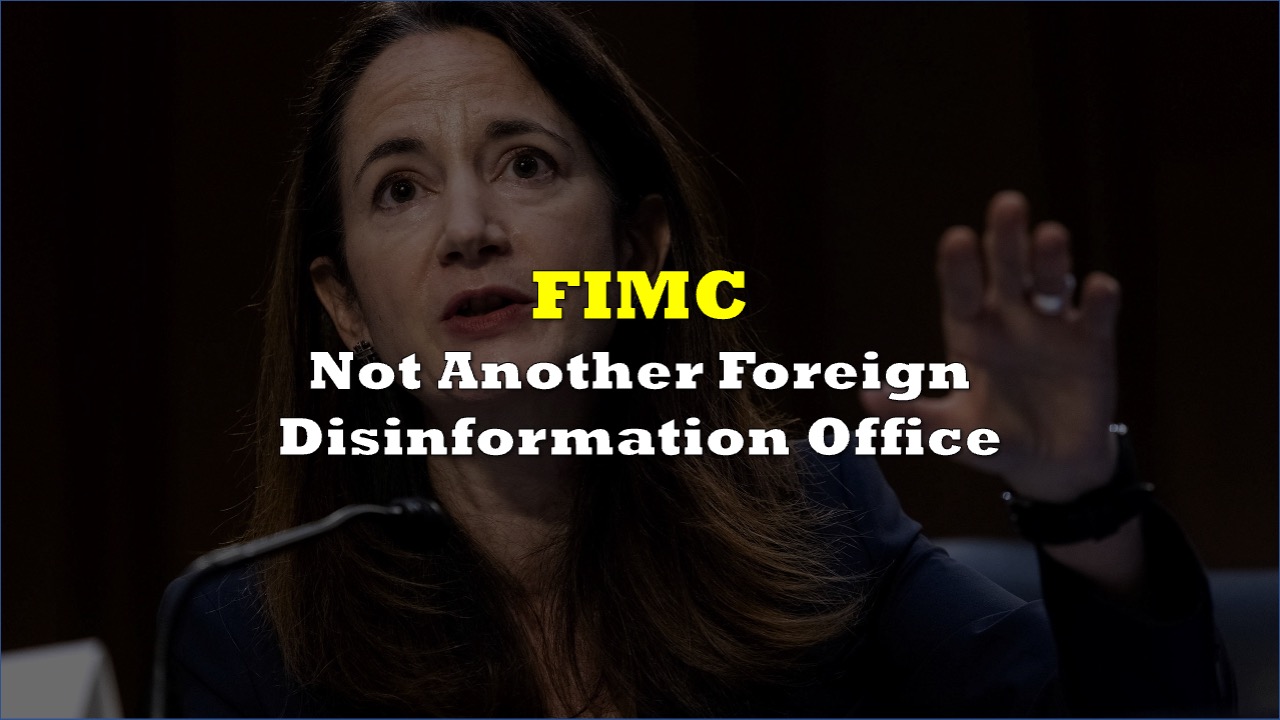The US government has established a new office to counter foreign disinformation — and to oversee all government entities charged with combating foreign disinformation.
Following concerns over the impact of Russian meddling in the 2016 election, a number of new offices popped up dedicating themselves to monitoring and fighting similar interference, including Pentagon’s new Influence and Perception Management Office, and according to The Intercept, “at least four organizations inside the Department of Homeland Security alone, as well as ones inside the FBI and State Department.”
Director of National Intelligence, Avril Haines, discussed the creation of the Foreign Malign Influence Center (FMIC) during testimony to the Senate Armed Services Committee. It was somewhat quietly established in September 2022 after Congress approved funding.
“Congress put into law that we should establish a Foreign Malign Influence Center in the intelligence community; we have stood that up,” Haines said, alluding to a measure that passed last year. “It encompasses our election threat work, essentially looking at foreign influence and interference in elections, but it also deals with disinformation more generally.”
The FMIC is under the Office of the Director of National Intelligence (ODNI) and has the authority to marshal support from all elements of the US intelligence community to combat foreign influence efforts. Its remit is not limited to US elections but extends to countering foreign disinformation targeting “public opinion within the United States” generally. Haines said the effort to counter disinformation has expanded beyond elections and Russia to include other foreign adversaries, such as China and Iran.
Critics have suggested that the efforts to counter disinformation have become a “cottage industry” that outsized the threat. The creation of — or the necessity for — the FMIC was debated in Congress for months, with concerns raised about how it would differ from existing entities.
Senator Mark Warner, a Democrat from Virginia and chair of the Senate Intelligence Committee, said he wanted to ensure that the new center would enhance efforts, rather than duplicate them or mire them in unnecessary bureaucracy.
US Air Force Reserves intelligence officer Major Neill Perry had similar sentiments, which he wrote about in the Army’s Cyber Defense Review in 2022. He says that the creation of the new agency is “puzzling” because it duplicates the mission of the State Department’s Global Engagement Center (GEC), and Congress does not elaborate on how FMIC would work with the GEC.
The GEC’s job is to “direct, lead, synchronize, integrate, and coordinate US Federal Government efforts to recognize, understand, expose, and counter foreign state and non-state propaganda and disinformation efforts aimed at undermining or influencing the policies, security, or stability of the United States, its allies, and partner nations.”
“In passing this legislation, Congress did not eliminate the GEC or reduce its mission. Not only does the GEC continue to exist, it may soon wield greater resources,” Perry wrote. “In May 2021, the Senate passed legislation that would double the GEC’s annual budget.”
The GEC’s budget is currently at $12 million, and the State Department has asked for $14 million for the next fiscal year. And there are two more years before the next election.
Information for this story was found via The Intercept, AP News, Brownstone Research and the sources and companies mentioned. The author has no securities or affiliations related to the organizations discussed. Not a recommendation to buy or sell. Always do additional research and consult a professional before purchasing a security. The author holds no licenses.




